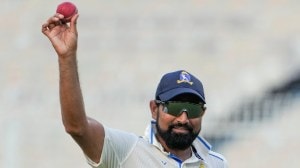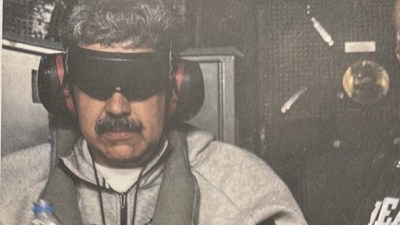University of music
For the passer byes who wait at the Shanipar signal on Bajirao Road,it is impossible to move on without having spent moments trying to find out the source of heavenly tunes of the harmonium or the glorious beats of the tabla that they hear.
The legacy of Bharat Gayan Samaj makes it a landmark not only on Bajirao Road,but also in the field of Indian classical music
For the passer byes who wait at the Shanipar signal on Bajirao Road,it is impossible to move on without having spent moments trying to find out the source of heavenly tunes of the harmonium or the glorious beats of the tabla that they hear. While many accelerate as the signal turns green,the ones who love Indian classical music wait for the signal to turn red again,a reason to mingle around for some more time. Dha dhin dhin dha the beats are not new,neither are the followers of those beats. The Bharat Gayan Samaj,located bang opposite the famous Shanipar Chowk has been the source of these heavenly tunes for about 100 years.
Started on September 1,1911 by Bhaskarbua Bakhale,the Samaj has been working on spreading the essence of Indian classical music amongst music lovers. When Bakhale thought of starting such an institute,he was encouraged by the other members of the famous Kirloskar Natak Company. Being located in the Kirloskar theatre,it was initially known as the Kirloskar Bharat Gayan Samaj, says Suhas Datar of the Samaj.
With relocations to places such as Deolalikar Wada near Gadi Khana,Tulsi Baug,Barve Wada,it was in 1933 that the institute was shifted to the current location. With the syllabus designed by Master Krishnarao,one of the disciples of Bakhale Bua,the Samaj offers Visharad and Parangat as the two certificates in seven art forms including vocal,harmonium,tabla,sitar,violin,Bharatnatyam and Kathak. Our certificates are recognised by the Government of Maharashtra and students who complete the seven-year course with us work as music teachers across the state, says Datar.
Having produced countless masters in the world of Indian classical music,the legacy of the place is such that it boasts of performances by legends in the field of Hindustani Sangeet. From Faiyaz Khan to Chhota Gandharva and from Bal Gandharva and Firoze Dastur to Pandit Bhimsen Joshi,I have been fortunate enough to listen to the performances by almost all the masters, smiles Datar.
With 10 programmes conducted every year,the place has also been involved in publishing books based on Indian classical music. The library at the Samaj boasts of over 4000 books on various topics related to music. What remains a striking fact is that despite the changes in the field of music,the foundation of the institute is unaltered since its inception. Many complain that the quality of music has been depleting day by day. My observation is that there are many who have been learning for teaching,but the ones who want to be performers are one amongst 100, he concludes.







